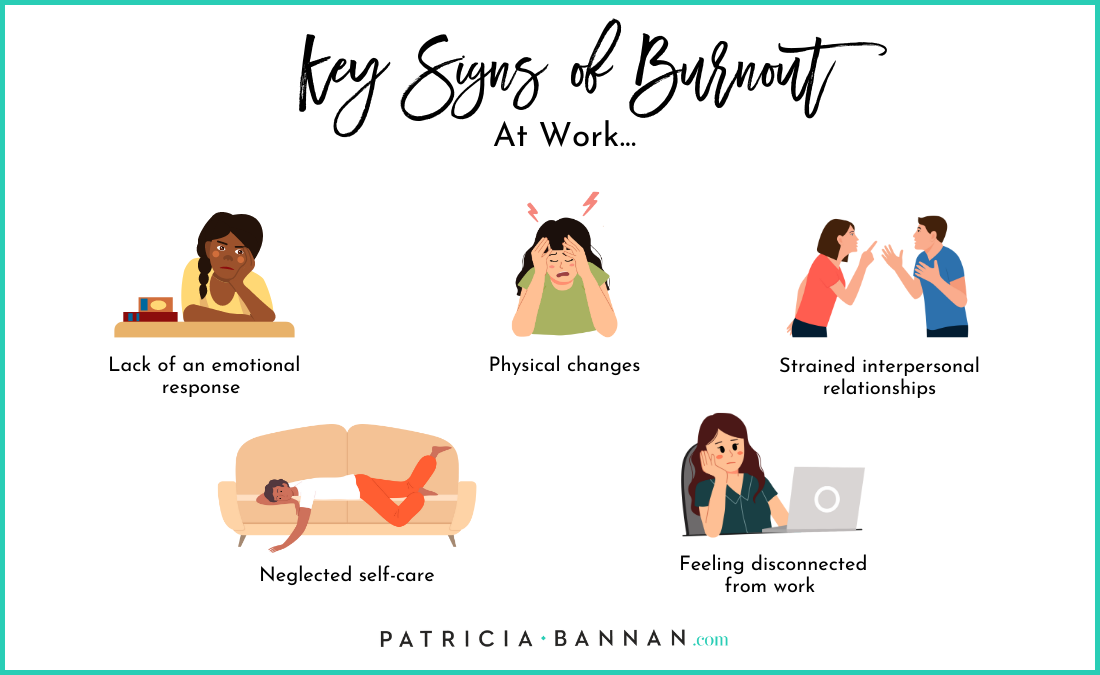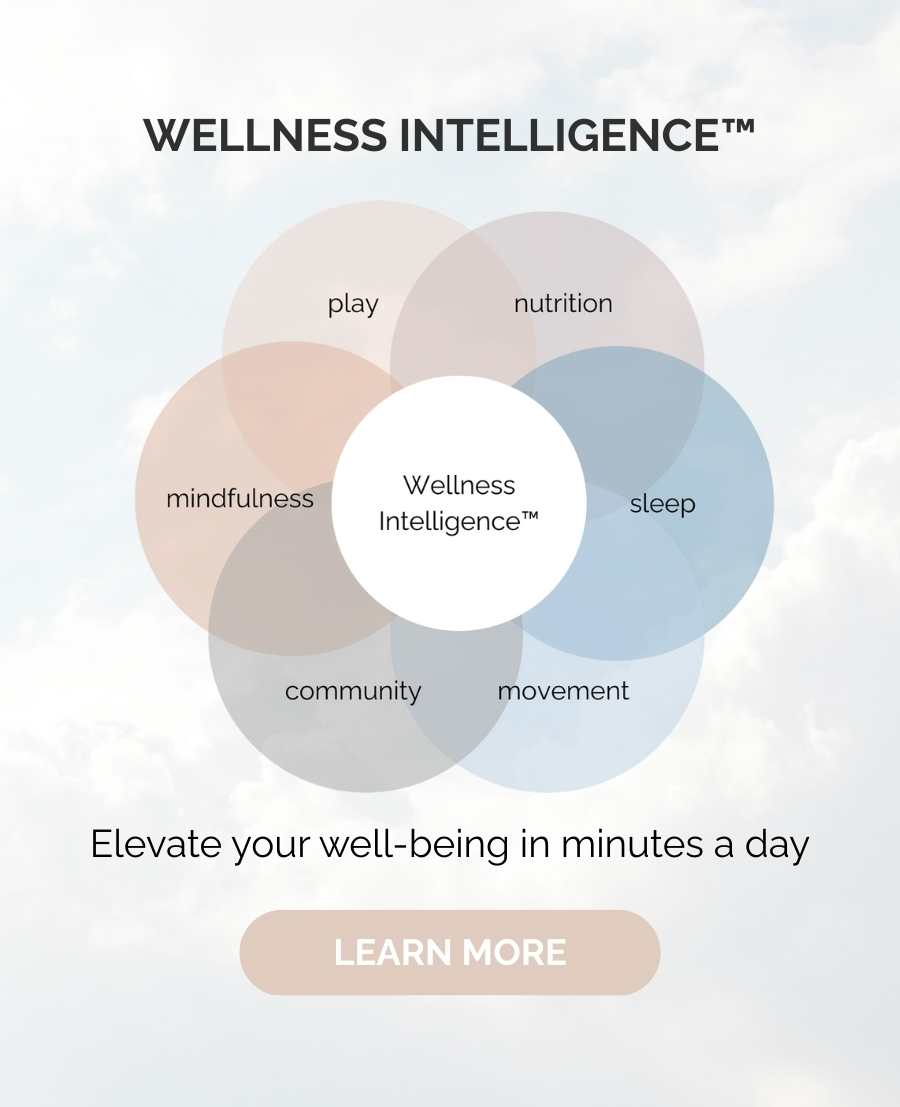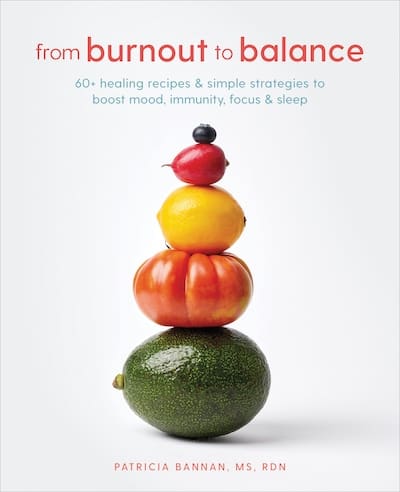Do you ever find yourself thinking, “I feel disconnected from work and home. I don’t care about any of it. I feel like I’m going through the motions?” If so, it’s likely you are experiencing signs of burnout at work.
As for me, I know burnout. I’ve experienced it firsthand and it’s exhausting, alienating, numbing, and downright sucks. The cost for me of powering through—or rather ignoring—all the warning signs of burnout took a toll on everything I had worked so hard to build personally and professionally. I had spent so long in fight-or-flight mode, forcing my adrenal glands to work overtime, that I had no energy left.
My Own Journey with Burnout at Work
I needed to get back to basics, which for me meant regular sleep, eating simple, healthy food, and moving my body.
Mostly though, I needed to listen to myself again. I needed to tune into the voice inside my head that had warned me I was pushing too hard. Even though I’m a registered dietitian with more than two decades of experience and a graduate degree, I lost sight of the things that mattered most when it comes to health.
And unfortunately, there are too many women that have reached these same limits, juggling multiple responsibilities at work and home, without proper time and tools to recharge their own self-care batteries.
But the good news is, sometimes simply becoming aware of the signs of burnout, and embracing small self-care habits that feel good, can shift you from burnout to balance. Read on to learn more about burnout, and what you can do about it to keep you inner light strong.
The 3 Dimensions of Burnout
It’s first important to understand that stress and burnout are two different things. Burnout was first measured on the Maslach Burnout Inventory, which divides burnout into three different dimensions for occupational burnout:
- Emotional exhaustion: You feel stuck, trapped, like you have no control over your life due to chronic stress that has eroded your resilience.
- Depersonalization: You start to become detached from yourself and your life. You don’t care about things that used to bring you joy, and you feel less connection to people (even your kids or sweetheart) and your work.
- Lack of accomplishment: You take less pride in your work (both at home and at the office), and you begin to doubt that you know what you’re doing. You start doing less or scaling back, but not in a strategic way that will heal burnout.
Burnout in Women vs. Men at Work
It’s also important to note that burnout affects women differently and more often than it does men. In 2019, Meredith Corp and the Harris Poll teamed up to get a feel on the level of stress women are facing today.
Compared with five years prior, women said they felt stressed, tired, anxious, and overwhelmed at significantly higher levels than the men surveyed. Two-thirds of women said they felt like they worked a full day before leaving for the office in the morning.
Women are also better than men at hiding burnout: According to the 2017 State of the American Workplace Report from Gallup, women are more engaged than their male counterparts at work—and they have been for as long as the analytics firm has been tracking that measurement.
Key Signs of Burnout at Work to Look For

So, with these humbling statistics, here are 5 key signs that you may be experiencing burnout in the workplace.
1. Physical Changes
One of the most common signs is a lack of energy and a feeling of hopelessness. Physical symptoms may also include headaches, shortness of breath, chest tightness, and stomach upset.
If you constantly feel these symptoms, even after a good night’s sleep, it may be an indication that work demands are taking a toll on your overall well-being.
2. Lack of an Emotional Response
When you have work-related burnout, you may feel emotionally exhausted, empty, or numb. Did something happen at work that would normally lead to a strong response, but you simply didn’t have the ability to react emotionally anymore?
3. Feeling Disconnected from Work
Burnout can significantly impact work performance, leading to a decrease in productivity and engagement. Shorter attention span and difficulty concentrating.
If you find it increasingly difficult to concentrate, make decisions, meet deadlines, or a pure lack of connection to your role, it may be a sign that burnout is taking its toll.
4. Neglected Self-Care
When working hard to fulfill your professional and personal obligations, self-care often takes a backseat. And to complicate it further, neglecting self-care can exacerbate burnout and negatively impact overall well-being.
5. Strained Interpersonal Relationships
Burnout not only affects your own well-being but can also strain your interpersonal relationships. As work demands increase, it’s common to sacrifice time with family and friends, leading to feelings of isolation and loneliness.
How to Take Action After Identifying Signs of Burnout at Work
Recognizing the signs of burnout is the first step towards finding the solution. If you suspect you are battling burnout, you can in fact beat and recover from burnout. My book, From Burnout to Balance, is also a robust resource with 60+ healing recipes & simple strategies to boost mood, immunity, focus, & sleep.







